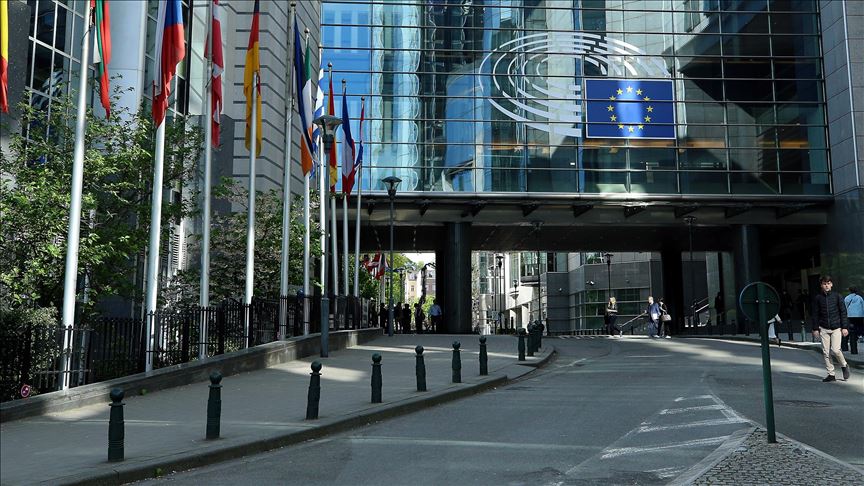
The writer is a senior research scholar at the Bridge Initiative at Georgetown University and a senior researcher at Salzburg University.
SALZBURG
“The European election will be an earthquake,” said Steve Bannon, a former special adviser to U.S. President Donald Trump. While some argue the fired architect of Trump’s campaign has become irrelevant and thus left the United States to find new friends elsewhere, others are not so sure about his presumed irrelevance. Bannon had already launched his think tank “The Movement” to disseminate ideas, advise politicians for campaigns and strategies and connect the far-right throughout Europe. And the far-right has been preparing for this election for some time now, swamping the internet with their political ads.
On May 18, Matteo Salvini, the chancellor of Italy and leader of the right-wing League party, led a rally together with his far right allies in front of Milan’s Gothic cathedral, pledging to make the right-wing alliance one of the largest groups in the upcoming elections for a new European parliament, which will be held between May 23-26. The rally was supported by Marine Le Pen, the leader of the National Rally (formerly Front National), the notorious Geert Wilders from the Netherlands’ Party of Freedom, Anders Vistisen from the Danish People’s Party, Jörg Meuthen from Germany’s AfD, Veselin Mareshki, a businessman who founded the Volya party and is referred to as Bulgaria’s Trump, Jaak Madison from Estonia’s EKRE, Boris Kollár, the leader of Slovakia’s “We Are Family” and the leader of the Czech SPD party, Tomio Okamura. Both Salvini and Heinz-Christian Strache had recently paid visits to Viktor Orbán, the prime minister of Hungary and the leader of the Fidesz party, which remains a part of the largest group in the European Parliament, the European People’s Party (EPP). Since Fidesz has been suspended on March 20 this year because of violation of basic principles of the party after Fidesz’s attacks on democracy, rule of law, freedom of press, academic freedom and minorities rights, there is an option for them to join the right-wing group, currently under the name of “Europe of Nations and Freedom”. According to Bannon, political leaders like Viktor Orbán, who had publicly declined to work together with Le Pen, would find a way to cooperate after the elections.
One of the main obstacles beyond this personal issue is obviously the Russian factor. While Salvini, Le Pen, the Austrian Freedom Party, where vice-chancellor Heinz-Christian Strache had recently had to step down and the government was dissolved due to a leaked video where Strache is shown offering government contracts for receiving support from a Russian newspaper take-over, and leaders such as Orbán are pro-Russian, potential allies from Denmark and Estonia are the opposite, fearing Russian influence and expansionism. Also Poland’s governing Law and Justice Party, who Salvini also met, is most likely to stay in its conservative group. But Russian disinformation is dovetailing many of the right-wing parties’ accusations against the Brussels and national elites. According to the European Commission, Russia's military strategy is to spend up to €1.1bn on pro-Kremlin media, which includes disinformation, by the end of 2020. For Russia, it is about divide and rule; Supporting the far-right would mean weakening the European Union and thus increasing the influence of Russian interests vis-à-vis weak nation states instead of a strong united Europe. EU vs Disinfo, a project launched to monitor fake news, reveals that disinformation to discredit the pro-EU establishment is strongly supported by Russian media outlets.
These upcoming supranational elections will be held on a national level, where voters can vote for national parties, whose MEPs then form pan-European groups within the European Parliament. Currently, the largest group is the center-right European People’s Party with 217 seats, followed by the center-left S&D with 189 seats, the European Conservatives and Reformists with 74 seats, the biggest liberal group ALDE with 68 seats, the far-leftist parties with 52 seats, and the European Greens with 51 seats. The two groups of right-wing parties rank 7th and 8th: the UKIP-led Europe of Freedom and Direct Democracy (EFDD) has 45 seats, followed by the 37-seat Europe of Nations and Freedom (ENF), which consists of a wide range of right-parties led by famous figures such as Le Pen, Salvini, Wilders, and others.
But according to the latest polls, this might change drastically. Right-wing party groups would no longer rank 7th and 8th, but 4th and 5th. This (mis-)calculation is based on the assumption of old alliances, including the German right-wing AfD in the EFDD, which is most probably not the case anymore. If the AfD gets 11 seats as the polls suggest, it will be likely for a right-wing group to get closer to the third rank. This would especially be the case, if the Hungarian Fidesz Party led by Viktor Orban joins the right-wing group. Twenty-one seats going to Fidesz could seriously pose a threat to the liberal ALDE group.
Bannon, after launching his think-tank The Movement, has focused on a project with the British-born Benjamin Harnwell, who leads the think-tank “Dignitatis Humanae Institute” (DHI) in Trisulti, Italy at an old monastery, which is designed to nurture a new generation of right-wing nationalist elite thinkers and leaders. With his envisioned alternative to George Soros’ Open Society Foundation, Trump wants to strengthen a European far-right, not least to help the Trump For 2020 campaign. Most probably, the European elections will not be an earthquake in the vision of Bannon, but it will be a serious step towards more power, human and financial resources, and professionalization, and last but not least, a normalization of the far-right throughout Europe.
* Opinions expressed in this article are the author’s own and do not necessarily reflect the editorial policy of Anadolu Agency.
Anadolu Agency website contains only a portion of the news stories offered to subscribers in the AA News Broadcasting System (HAS), and in summarized form. Please contact us for subscription options.


